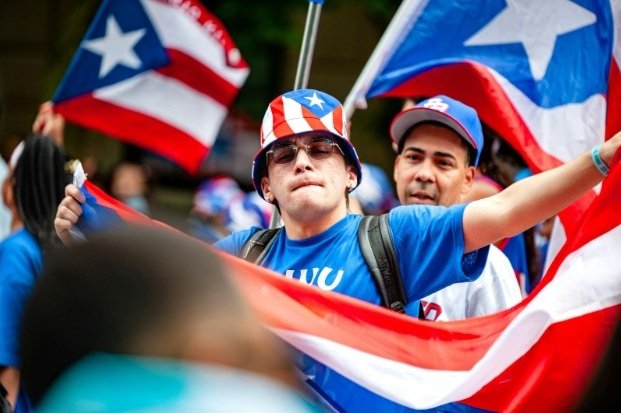In 1998, my mother was summoned back home by Latin roots that were severed long ago. Home was her birthplace Ponce, Puerto Rico, the birthplace of plena, my grandmother and bis abuelas.
In 1958, my mother came to Chicago where she planted new seeds, my two sisters and I. But after toiling for four decades in American factories and offices, and having established a better life for the next generation, she left, and in the process, left us her daughters behind.
She left before her oldest daughter (me), would graduate from college. She left before her middle daughter, the first to graduate from college, began working in her garden, unable to share the green thumb she inherited from her. She left before her youngest daughter, the second college graduate, would marry and start a family—if she ever decides to since she’s a woman of the new millennium. And she left before her four grandchildren would graduate from high school.
In her wake, Mami left behind memories of Sundays at her first and only house in Chicago, where we would all congregate to talk about current events, our boyfriends, husbands, ex’s, and our children. She left before I learned how to make arroz junto or alcapurrias or pasteles just like hers. Back then, she was always a ten-minute drive away, a phone call away. Now, even though she is still a phone call away, she is a whole time zone away, untouchable. Never mind the phone company’s ad to reach out and touch someone. When we call her, we tease her. You don’t belong there, we say. You belong here, with us. She overlooks our selfishness and laughs, the relaxed, guiltless laugh of the retired and a mother who knows she’s done her best.
She left us with the memories of our ancestor, Maria La ‘O’ Franceschi, her great-grandmother who recalled stories of her grandmother being shackled as a slave in the West Indies. Then there was the legend of Toño Bicicleta who was rumored to carry off women on a bicycle never to be seen again. And she left the countless cuentos of an impoverished childhood, how she and her six brothers and sisters shared one bed with a hole in the middle. How they would run barefooted, half-starved to meet their mother when she arrived late at night with leftovers after cooking en la casa de los ricos, after the abuelo I never got to call Welo, died. She left these stories indelible, stitched in our minds like a quilt with hidden messages, a tapestry of tales, so that we would never forget, and we would always be thankful in everything.
She left before I had the chance to tell her she was right; I should have never married so young. She left before I had the chance to tell her thank you for allowing me to make my own mistakes, for never saying I told you so, for all her consejos.
And even though I can talk to her anytime, I can never explain what it feels like not being able to drive to her house, or what it feels like when I can’t think of a particular word in Spanish, or how I will miss our debates about race relations or whether Puerto Rico should be the next state. It is a desperation that has no name, like Spanish phrases that have no translation into English, like losing my voice temporarily. No method of telecommunications can bridge that gap.
Her presence left a lasting impression on my life at the same instance her absence left a hole in my heart. It took me a while, but I realize now that home is not her old house in Chicago, or her birthplace in Ponce, or her new home in Gurabo. Home is in the sweet cadence of her Spanish on the phone. Home is in her savory sofrito and the bittersweet cuentos and age-old consejos embedded in my memory. Home is in legacy of the roots she nurtured—in the daughters and the grandchildren she left behind. Home is where Mami is
Xenia Ruíz contributed this article to Boricua.com.
She is based in Chicago, IL



